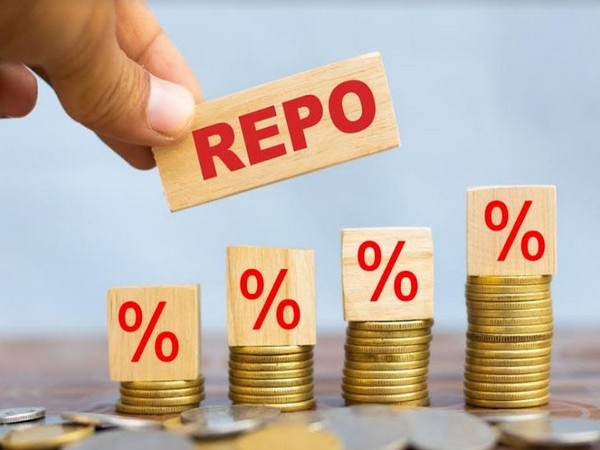Indian Economy: An Oasis in the Gloomy Global Desert- Nilesh Shah, Group President, and MD, Kotak Mahindra Asset Management
Jan 07, 2023

New Delhi [India], January 7 (ANI/Mediawire): "Recycling of Gold and Gold Disclosure Policies Can Set a Foundation for a Sustained Economic Recovery."
As a part of The Times of India Group's campaign titled 'The Golden Truth', Mihir Bhatt, Managing Editor of Times Network, discussed with Nilesh Shah, Group President, and MD, Kotak Mahindra Asset Management. The conversation ranged from the Indian economy, and its stand in an unpredictable global economy to policies that can help and how gold can drive growth.
Talking about India as an oasis in the desert, Shah asserted that while nations are struggling to meet the daily economic needs of its citizens, India is shining like a bright beacon of hope with its fast-growing cities, eased-up markets, and burgeoning construction activities in commercial space. "We can compare the GDP of Maharashtra today with that of India in 2005. So if all the states touch India's GDP from today over the next two decades or so, that is long-term growth for India," he said.
Shah reflected that barring a few short-term fluctuations, Indian markets have overall done exceptionally well. "In MSCI emerging markets, our shares went up from 7 per cent in 2014 to 16 per cent in 2022. Due to our substantial premium on the one-year basis at the MSCI emerging markets, we may find that traders are tempted to invest outside of India from a global allocation point of view because we look more expensive than our peers on the one-year business. But global long-term investors will invest in India on strategic businesses on a five-year or ten-year basis because the Indian economy is growing."
Shah also pondered upon the Russia-Ukraine war and its impact on commodity prices and crude. Elaborating further, Shah said that the unpredictable nature of the Russia-Ukraine war, the inconsistent nature of global central bankers including the US Fed, and China's zero Covid policy, can lead to volatility that India needs to brace for. "All these things will continue to impact the global economy. We can simply hope for resolutions and corrective actions that may slow down short to medium-term growth but lays the foundation for longer-term growth."
Answering the earnings expectation from Indian companies due to the upcoming holiday season, Shah assured that the Indian economy is doing well from an investment and consumption point. "However, due to a subdued private capital, the recovery is slow," Shah advised that corrective actions based on appropriate policies can ensure India's continued growth.
Shah insists that barring the Reserve Bank of India, most global central bankers have lost their credibility due to their inability to manage inflation. "Once these central bankers decide to take corrective action, they will double down on controlling inflation. Growth will be hit hard with it already suffering from energy prices and the withdrawal of fiscal stimulus in the West. I feel that they will commit a type 1 error, raising interest rates to control inflation at the cost of growth, rather than let inflation persist with the same interest rates to support growth."
Answering a question about the Rupee-Dollar dance, Shah confirms that unless we bridge the gap between inflation and productivity differential, it is inevitable that the Rupee continues to depreciate.
Calling the craze of gold in India its Achilles' Heel, Shah said, "For us to break even this year, we need to input about 7 billion dollars worth of gold. With smuggling and travelers purchases, we have sent more money abroad for import of gold than all the foreign direct investment we have received."
Shah asserted that instead of using the money to fund Indian entrepreneurs who are creating value, we are betting on gold. "If this 500 billion dollar outflow of Indian savings was invested as bank deposits, mutual funds, stocks, debentures, bonds, etc., the Indian economy would have flourished."
He advised that as Jan Dhan and simpler KYC have done, this craze for gold needs to be managed. "A gold disclosure scheme and tighter monitoring of physical gold can ensure that this debt capital is converted to financial savings and it starts circulating in the economy," he said.
Talking about digital currency and its regulations to check grey market transactions, Shah said that while most people have adopted digital payment systems, some still do not believe in paying taxes. "We need to figure out a gold disclosure scheme in which people are incentivized to disclose their gold in tax and move from the black economy to the white economy. We can't be only dependent upon foreign capital to drive incremental growth, we need to back it up with domestic capital as well." Addressing instruments such as gold ETFs and REITs as investments in imported gold, Shah insists that we need to encourage the recycling of gold.
Talking about the five trillion dollar mark of the economy, Shah insists that India has everything going for it. "From global investors looking to invest here, China plus one, Europe plus one policy on manufacturing, our highly-valued services expertise in IT, and remittances over a hundred billion dollars, we will lead the growth despite challenges."
Shah said that with a global share of about 3.5 per cent in GDP, India contributes substantially to global growth, leading the world towards sustained growth.
#SayNoToBadgold
To know more about the Golden Truth initiative, please visit -
This story has been provided by Mediawire. ANI will not be responsible in any way for the content in this article. (ANI/Mediawire)




















